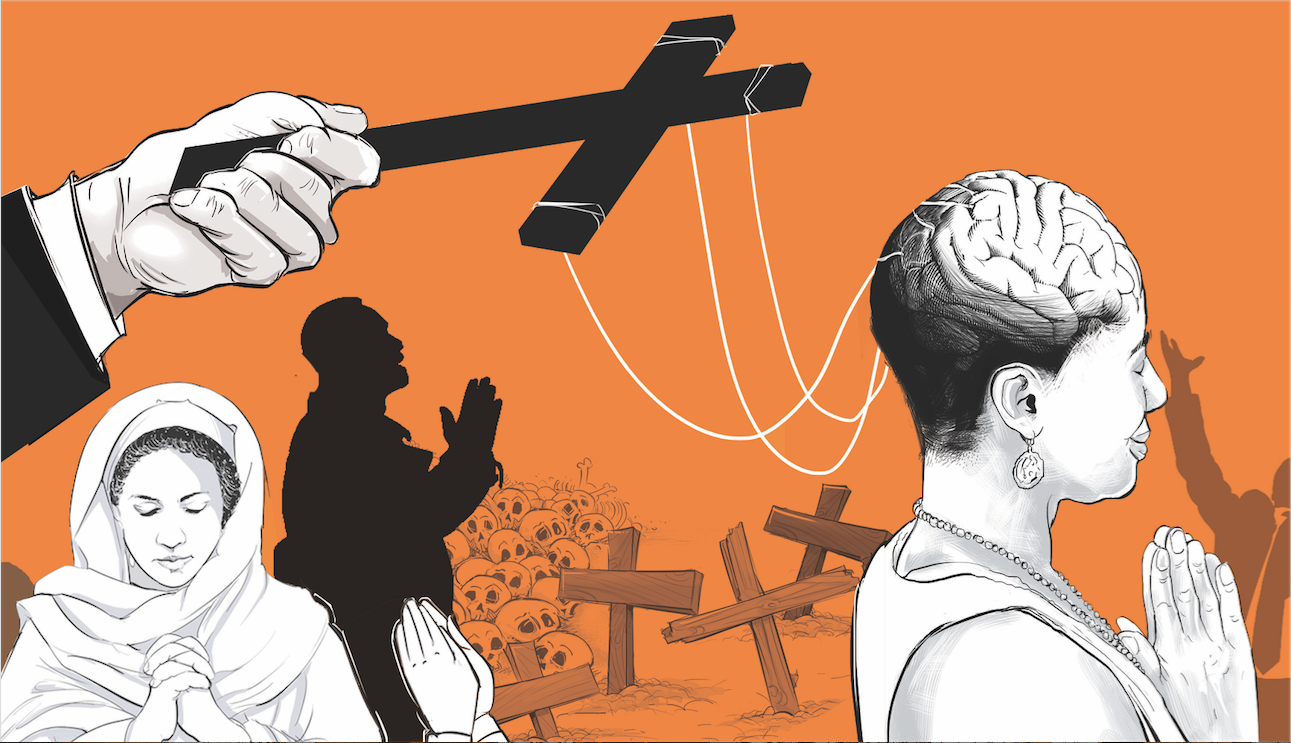

Once again, Kenya is being forced to relive the horrors of Shakahola. The grim exhumations currently underway in Kwa Binzaro, already being branded as "Shakahola 2", are a haunting reminder of a government that refuses to learn from its past failures. How many more shallow graves must be dug before those in authority accept that their negligence, incompetence and outright complicity are costing Kenyan lives?
When the Shakahola tragedy broke in 2023 in Chakama, Kilifi county, Kenyans were promised justice, accountability and systemic reforms to ensure such a mass atrocity would never happen again. Instead, we got half measures, hollow press briefings and endless politicking.
The result? A repeat massacre, enabled by the very same killer cult, under the very same leadership, with the very same consequences—innocent Kenyans lured into death by a manipulative and dangerous man of the cloth. The state has failed once again, spectacularly.
One
of the most glaring mistakes after Shakahola 1 was the government's refusal to
work with the very communities surrounding Chakama and other affected areas.
Locals were the first to notice strange activities, sudden disappearances and abnormal
gatherings. They sounded the alarm long before the state did, yet when the
tragedy broke, the government sidelined them entirely.
Instead of empowering community elders, civil society groups and local leaders to act as the first line of defence against cult activities, the state pursued a top-down, securitised approach. This exclusion of the community created fertile ground for the cult to re-emerge in Kwa Binzaro.
Prevention was always possible, but only if the government had been willing to admit that communities, not the distant bureaucracy in Nairobi, are the real eyes and ears of security.
Perhaps the greatest insult to the survivors of Shakahola 1 was how they were treated not as victims of a heinous crime, but as criminals. Police and prosecutors dragged them to court, slapped them with charges and painted them as willing participants in their own suffering. What they needed was care, counselling and reintegration support. What they got was humiliation, punishment and incarceration.
This was not just cruel. It was a missed opportunity. Survivors could have been powerful voices of truth, living testimonies to convince cult members still in hiding to abandon the deadly teachings of Paul Mackenzie. Instead, by criminalising them, the state reinforced the cult's narrative of persecution, driving its followers deeper underground and making them harder to reach. This failure is now being replayed in Kwa Binzaro, where fresh deaths are being unearthed because victims who could have helped save others were silenced and shamed instead.
Then there is the scandalous fact that Paul Mackenzie, the man at the centre of both Shakahola and Kwa Binzaro, has been allowed to continue exerting influence from behind bars. To this day, reports persist of Mackenzie being given access to a phone inside prison, enabling him to communicate with and command his loyalists on the outside. No other than the Cabinet Secretary for Interior himself, Kipchumba Murkomen, has admitted this glaring failure by the state.
This is not just incompetence. It is complicity. How does a man accused of masterminding the deaths of over 400 Kenyans retain the ability to direct his followers from prison? Why has the state failed to cut off his influence? Why is a suspected mass murderer treated with such shocking leniency while victims are dragged to court as criminals? How does the state allow a suspect to continue to operate a killer cult from the precincts of prison, right under the noses of prison authorities?
I was personally present to break the story of Shakahola 1, standing on the frontlines as the first graves were uncovered. I witnessed and was directly involved in the harrowing exhumation and autopsy of more than 400 bodies. Today, I am again engaged in exposing Shakahola 2 and documenting the ongoing Kwa Binzaro exhumations. How many more exhumations will there be?
The bitter truth is that the fresh deaths in Kwa Binzaro are not accidents of fate. They are the direct result of this continued communication. Every grave being dug today is evidence of the state's dereliction of duty. It is a confirmation that the state only pays lip service to the sufferings of the poor and marginalised. It is an open and clear case of a government that does not care.
The exhumations in Kwa Binzaro are not just a tragedy; they are an indictment. They tell us that the state has learned nothing, changed nothing and done nothing to protect its citizens from the scourge of cultic exploitation. It is a big letdown by the state security apparatus.
As Kenyans, we must face the uncomfortable truth that the government has failed us, not once, but twice. It failed the victims of Shakahola by denying them dignity, protection and justice.
Now it has failed the victims of Kwa Binzaro by allowing the same conditions, the same leadership and the same cult to operate unchecked. What we are witnessing is a betrayal. A betrayal of the most sacred duty of any state—to protect the lives of its citizens.
The time for excuses is over. The state must be held accountable for its acts of omission and commission that led to the Kwa Binzaro killings. Those who enabled Mackenzie to continue his influence from prison must answer for it. Those who treated survivors as criminals instead of victims must answer for it. Those who ignored the role of communities must answer for it.
Shakahola was supposed to be the last tragedy. Kwa Binzaro proves it was only the beginning. If we, as a nation, do not demand accountability now, then we condemn ourselves to witnessing yet another mass grave in the future.
The government has failed Kenyans. It has failed the victims of Shakahola. It has failed those now being pulled out of the soil in Kwa Binzaro. That failure is written in the blood of our people, and it will not be forgotten.













